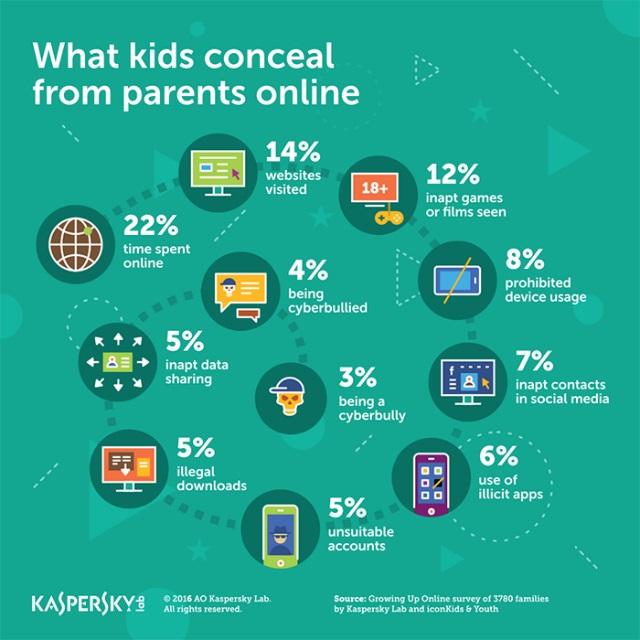Majority of parents unaware of kids’ online activities —survey
A recent survey done by Kaspersky Lab and the iconKids & Youth agency reveal that a majority of parents are in the dark about their children's online activities.
According to data gathered from 3,780 families, one in two children or 44 percent of the respondents hide risky behavior from parents.
Around 51 percent of teens aged 14 to 16 choose not to share incidents on the web with their parents.
More alarming, they said in a statement that "the more dangerous the activity, the less likely parents are to find out about it."
Their survey, the results of which were released on April 6, reveals that 56 percent of parents do not know how much time their children spend on the Internet.
Seventy percent, on the other hand, are unaware of illegal downloading or cyber-bullying.

Kaspersky Lab lists the following as activities children conceal from their parents:
- Time spent online (22%)
- Websites visited (14%)
- Inappropriate games or films seen (12%)
- Prohibited device usage (8%)
- Inappropriate contacts in social media (7%)
- Use of illicit apps (6%)
- Unsuitable accounts (5%)
- Illegal downloads (5%)
- Inappropriate data sharing (5%)
- Being cyber-bullied (4%)
- Being a cyber-bully (3%)
The number seems low at 4% for being cyber-bullied or having "inappropriate contacts in social media", but Kaspersky Lab argues that these pose a very real threat to the child.
Parent education, guidance
“Parental care and guidance cannot be limited to the real world only, because such a large part of children’s lives nowadays is spent online,” said Andrei Mochola, head of consumer business at Kaspersky Lab.
On a more positive note, their survey also revealed that 75 percent of children said that they would find a talk with their parents about online safety helpful, even as 30 percent admitted to taking measures to bypass parental control.
“Parent education plays a major role in protecting children online. If children think their parents are able to calmly discuss the issues they encounter, they are much more likely to confide in them. That’s why it’s very important for parents to find out more about online threats, increase their own cyber savviness and to build trust with their children in order to be a part of their lives, whether they are online or offline," states Janice Richardson, senior adviser at European Schoolnet. "Let children know that whatever happens, you are always there to listen, support and help."
"Moreover, recent research from the European Commission shows that it is often children themselves who ask for parental controls to protect their younger siblings,” she added. —Aya Tantiangco/KG, GMA News



